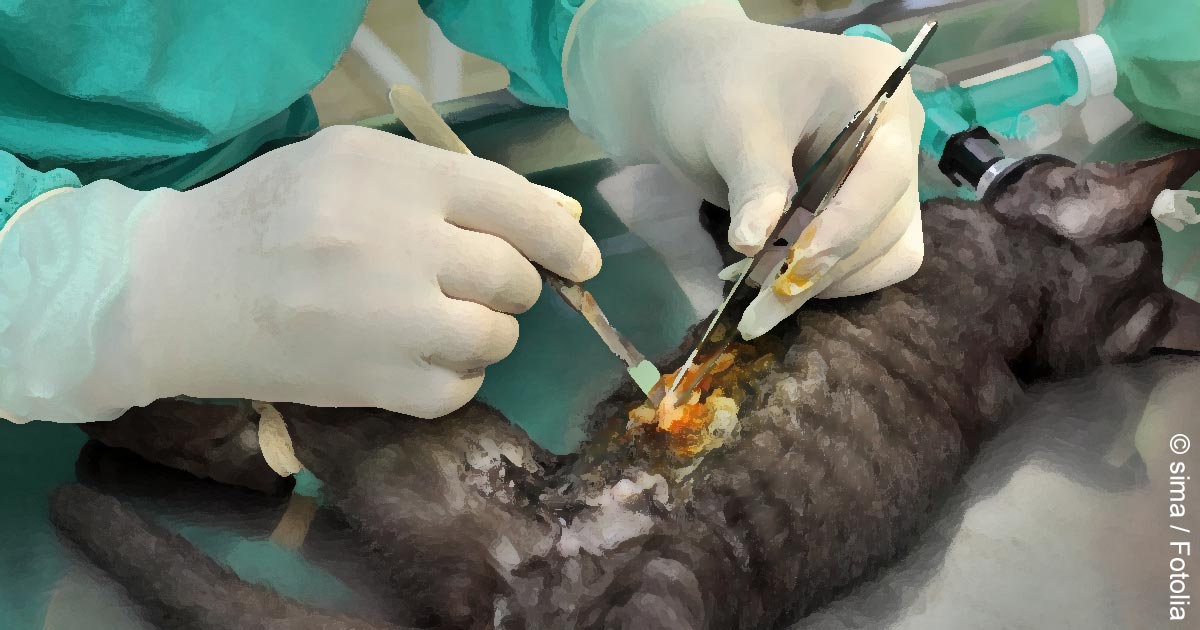I’m only a few short weeks into my final-year rotations at the University of Bristol’s Veterinary Referral Hospital, but I already feel like I’ve learned a lot:
- DOPs aren’t as scary as I’d built them up to be in my head.
- It does get easier to navigate your way around the hospital with time (and trial and error).
- There are quite a few differences between first-opinion and second-opinion practice that I’d never really considered until now.
Budgets
The gift that is the NHS can certainly make us blind to the costs of routine medical procedures. Something as simple as an ultrasound, blood work and a couple of days’ hospitalisation can amass a bill that’s simply unaffordable for a lot of pet owners.
I’ve seen a lot of cases reach the end of the road due to lack of funds, when the answer (or potential answer) was frustratingly simple, but just too much money. The reality of referral practice, however, is that if your patient has made it to you in the first place, there is likely a higher budget to play with than the average consult.
When you’re on a certain rotation, you find yourself doing the same diagnostics every day, so it’s easy to lose track of the value of the drug you’re administering, or the probe in your hand. I think my group and I honestly balked when the cardiology team told us the cost of a standard echocardiogram at the end of our week where we’d been observing between 6 to 10 a day. Of course, it’s still important to keep costs low wherever possible, but it’s been interesting to see how larger budgets and insurance policies are broken down.
Seeing small animal CTs, echocardiograms and neurosurgeries for the first time was an amazing experience, but I do need to keep reminding myself that the proportion of my future patients that will go on to have these sorts of procedures is incredibly small.

Specialisms
When you’re learning in a veterinary hospital, you’re constantly surrounded by leading experts in the field of everything under the sun, and sometimes it’s hard not to feel like a monkey with a stethoscope. Usually, in first opinion, there’s an assortment of different strengths throughout the practice – one vet may have intercalated in neurology and behaviour, while another may has done more CPD on exotic animal medicine. These differences are an asset to every practice and make team working an essential and valuable commodity.
In a referral setting, these “strengths” are often extended to actual specialisms, where the vets are not only actively involved in research in a particular field, but see only animals in a certain category of illness. The need for teamwork, however, is just as paramount here – if not more so!
After working in cardiology for a week and beginning to feel like I didn’t know anything, I can tell you that it was very refreshing to have the head of another department pop their head through the door and ask what on earth was going on with their patient’s heart. When they also didn’t know the actions of all the drugs I’d been painstakingly trying to commit to memory for the past five days, that too came as a wave of relief.
Client communication
Good communication and patience come hand in hand. If you’re delivering bad news to a client or talking them through a complicated diagnosis or treatment plan, that takes time – and although the average first opinion consult is only 15 minutes long, I’d say that, rather oxymoronically, there’s more time to deal with difficult situations in that scenario than in emergency referral.
Of course, first opinion sees it’s share of emergencies as well, but for the most part vets see a disease present slowly over time and are able to prepare their clients accordingly.
In the past couple of weeks, however, I’ve seen referral vets have to delicately balance client communication with the urgency of life-threatening conditions. Sometimes there are mere minutes to intervene after an animal enters the hospital, and vets must be very diligent and considerate when explaining this situation to an owner who may not yet grasp the severity. Owners have to have informed consent at all times, and to be prepared and supported in the event of any potential outcomes, but the sooner an animal is triaged and either treated or prepped for surgery the better.
I think that this is where the truly brilliant vets really shine. To have compassion and humanity at the forefront, with animal welfare and haste also in mind, takes a lot of mental and emotional gymnastics. I’m honestly in awe of every vet I’ve seen both in the past few weeks and over my years seeing practice who’s had to deal with a crisis on both the animal and the human end.
As of yet, I’m unsure if my career will lead me to first opinion or referral practice, but I can appreciate the similarities and differences between the two – despite us all starting out in the same place.



 Supposedly, we’re ready to take on the outside world as real vets. We’ve got heads full of knowledge and hands that have meticulously repeated sutures, catheterisations, and injections to maintain muscle memory. But what we haven’t got is experience.
Supposedly, we’re ready to take on the outside world as real vets. We’ve got heads full of knowledge and hands that have meticulously repeated sutures, catheterisations, and injections to maintain muscle memory. But what we haven’t got is experience.




